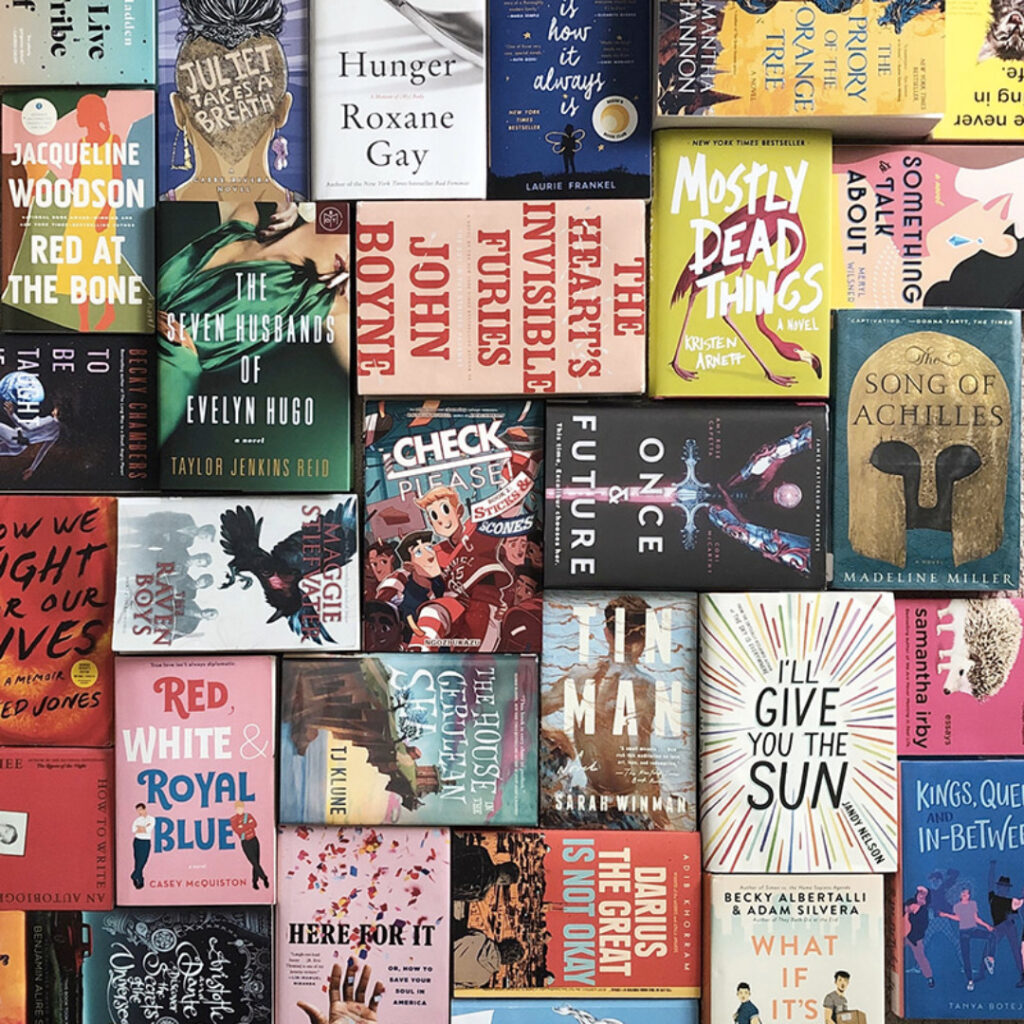As representation of LGBTQ+ people in the media continues to grow, there has been an explosion of queer content across social media in the form of queer booktok.
Booktstagrammers (the original booktokers) aren’t a rare phenomenon. In recent years people have taken to social media to review books, and share recommendations. However, there has always been a huge gap- where are all the LGBTQ+ books and writers?
Theresa, known as @libraryofsappho has a following of 11.3k on her Instagram, and thousands more across her Tiktok and Youtube. On her brightly rainbow coloured feed, she shares endless recommendations for queer books both broadly and more niche genres; space gays anyone? LGBT fairytale retellings? Where queer people seem to have been left behind, Theresa and other creators are helping close the gap of representation.
‘Every reader should see themselves represented in fiction.’
Representation is something people who need it will never take for granted. Sharing these books all year round is an invaluable resource, especially considering the phenomenon of ‘rainbow capitalism’. This is where large companies profit off of LGBTQ+ identities during Pride month. By consistently sharing LGBTQ+ books, it shows that queer people aren’t a commodity but are real people that exist. It shows that we can be the main character, the cheerleader, the vampire, the zombie.
Not only that, but representation can have a massive personal impact. ‘I’m not sure I’d even have discovered lesbian books without someone there to point me in the right direction’, Theresa says. ‘I can’t imagine what my life would look like without them, if I’d have accepted that I was a lesbian.’
This representation of LGBTQ+ identities should certainly extend to feminism as excluding queer people from feminism is extremely damaging. Theresa mentions how, ‘LGBTQ+ and feminist causes have been intertwined throughout history’ and she couldn’t be more right. Feminist and LGBTQ+ issues are so closely linked and both communities have a huge history of oppression that it is only right to lift each other up. For example, the LGBTQ+ community owes so much to transgender lesbians at the Stonewall riots, meaning our fight for basic human rights would be much further back without them.
‘To put it simply, feminism without queer people isn’t feminism at all. It leaves too many people behind.’
Theresa’s, and other similar accounts, are doing incredible work, and, potentially surprisingly, has been received extremely positively. Theresa’s path to growing her following benefited from discussing queer literature. She mentions that, ‘it wasn’t until I began talking more and more about queer books that I began to gain a large following. I had only had my YouTube channel for a couple months when I uploaded my first ‘Sapphic Reads’ video talking about every sapphic book I’d read so far and it was my first video to really take off. Ever since then I have felt so completely welcome in the book community and LGBTQ+ community with my unapologetically queer content.’ This shows the overwhelming impact that queer people have on media. As in real life, queer people flock to other people in the community for support, representation, and safety.
‘Feminism must be intersectional, in my opinion, or it is not feminism at all.’
Kimberlé Crenshaw coined the term ‘intersectionality’ in 1989 which explains how social issues such as class, race, sexuality and more can overlap to create different forms of discrimination. Intersectional feminism is important to see how inequalities link, and how people affected can support each other. As Theresa rightfully mentions, ‘feminism must be intersectional, or it is not feminism at all’. Because of that, Theresa suggests following creators on social media who recommend a wide range of diverse books and media. This will help to keep your feminism intersectional and enable people to uplift underrepresented voices. These books can then help to ‘explore intersections of queerness and race, religion and disability’.
So to celebrate LGBTQ+ History Month and queer identities in February and beyond, Theresa would recommend Casey McQuiston’s books. ‘Casey is a queer and trans author of LGBTQ+ romances that make you swoon, and laugh out loud. They’ve published two adult novels, Red, White and Royal Blue and One Last Stop, and will be making their young adult debut in May. Casey’s novels have a large theme of queer community and history, particularly One Last Stop, featuring a butch lesbian displaced from the 70’s.’ Other LGBTQ+ authors worth checking out this LGBTQ+ History Month include Dean Atta, Adiba Jaigirdar, Juno Dawson, Alice Oseman, Adam Silvera, and many more.
